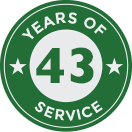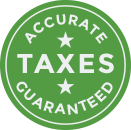Church & Clergy – End of the Year Tax Checklist
December is a very busy time for churches and clergy. Extra services, Christmas shopping and holiday parties can fill your schedule before you know it. The end of year is an important time of the year for financial/tax issues as well. Here are a few things churches and clergy should be thinking about as we…
2011 Year-End Tax Strategies For Clergy
Here’s a quick checklist of tax savings strategies to consider and apply before the end of December: 1. Make Charitable Contributions and Donations: Generally, for individuals, contributions to tax-exempt charitable organizations are limited to 50 percent of the taxpayer’s adjusted gross income for the tax year. Those unused items cluttering closets can be donated to…
Ten Tax Tips for Clergy Who Are Moving This Summer
Summertime is a popular time for people to move. Moving can be expensive, but Clergy Financial Resources offers 10 tax tips on deducting some of those expenses if your move is related to starting a new job or a new job location. Move must be closely related to start of work: Generally, you can consider…
Summer Day Camp Expenses May Qualify for a Tax Credit For Clergy
Along with the lazy, hazy days of summer come some extra expenses, including summer day camp. Clergy Financial Resources has some good news for parents: those added expenses may help you qualify for a tax credit. Many parents who work or are looking for work must arrange for care of their children under 13 years…
Tax-Time Errors Filers Should Avoid
Mistakes on tax returns mean they take longer to process, which in turn, may cause your refund to arrive later. Clergy Financial Resources cautions against these nine common errors so your refund is timely. Incorrect or missing Social Security Numbers When entering SSNs for anyone listed on your tax return, be sure to enter them…
Three Tax Tips to Make Tax Filing a Breeze
Tax preparation shouldn’t be so stressful. Clergy Financial Resources has put together three tips to help make your tax filing experience a breeze this year. 1. Don’t Procrastinate. Resist the temptation to put off your taxes until the very last minute. Rushing to meet the filing deadline may cause you to overlook potential sources of…
Six Facts about Choosing the Standard or Itemized Deductions for Clergy
When filing your federal income tax return, clergy can choose to either take the standard deduction or to itemize their deductions. Clergy Financial Resources has put together the following six facts to help you choose the method that gives you the lowest tax. Whether to itemize deductions on your tax return depends on how much…
Want Your Tax Refund Fast – Choose Direct Deposit
Direct Deposit is the fastest, safest way to receive your tax refund. An e-filed tax return means a fast refund. Taxpayers who combine e-file and Direct Deposit can get their refunds in as few as 10 days. Here are three reasons more than 73 million taxpayers chose Direct Deposit in 2010: Security Thousands of paper…
Eight Tax Benefits for Parents
Did you know that your children may help you qualify for some tax benefits? Here are 8 tax benefits to consider when filing your tax returns this year. Dependents. In most cases, a child can be claimed as a dependent in the year they were born. Child Tax Credit. You may be able to take…
Two Tax Credits to Help Pay Higher Education Costs
There are two federal tax credits available to help you offset the costs of higher education for yourself or your dependents. These are the American Opportunity Credit and the Lifetime Learning Credit. To qualify for either credit, you must pay postsecondary tuition and fees for yourself, your spouse or your dependent. The credit may be…






